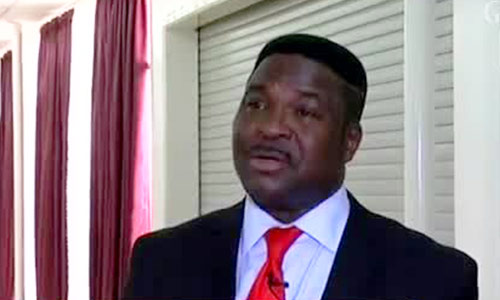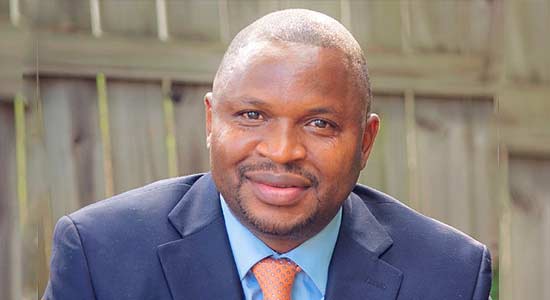Why Nigeria Needs Restructuring (4)

By Mike Ozekhome SAN
Introduction
The word restructuring has become the latest word in the political landscape with political and non-political actors pushing forward their ideas of the word that was not too long ago, abhorrence to many state actors. Today, we shall x-ray further why Nigeria needs restructuring.
Nigeria’s earlier panacea through true fiscal federalism
Before the 15th January, 1966 military coup led by Major Kaduna Nzeogwu Chukwuma from Okpanam, Nigeria operated true fiscal federalism amongst the then three regions – Western, Northern and Eastern Regions. They were later joined by the Midwest region which was excised out of Western region by popular Plebiscite and referendum on the 10th of August, 1963.
The Architects of that federalist feat were Dr. Dennis Osadebay (later Prime Minister); Oba Akenzua II; Dr. Christopher Okojie; Justice Kessington Momoh, Chief James Otoboh, Chief Humphrey Omo-Osagie; Chief Festus Okotie-Eboh (Omimi Ejoh), Chief Jereton Mariere and Chief David Edebiri, the Esogban of Benin Kingdom.
Section 140 of the 1963 Republican Constitution which replicated section 134 of the 1960 Independence Constitution provided that 50 per cent proceeds of royalty received by the federation in respect of minerals extracted from a region, including any mining rents derived by the federation belonged to a Region.
Effectively, this made the Regions which also had their separate regional Constitution (with a federal one at the centre) to control their resources. Only 20 per cent was paid to the federation; and another 30 per cent shared by all the regions, including those that had already shared 50 per fcent.
In the Northern Region, Sir Ahmadu Bello, the Northern Premier who had sent his NPC Deputy (Sir Abubakar Tafawa Balewa) to the centre to be Prime Minister, preferring to govern his people, utilized the resources of northern Nigeria. With the famous Kano groundnut pyramid, cotton, Hides and skin, the imperious by cerebral Sardauna, who had valiantly fought for, but failed to become the Sultan of Sokoto at 29, losing to Sultan Siddiq Abubakar III, who reigned for 50 years till 1988.
The great grandson of Uthman Dan Fodio (of “Conscience is an open wound; only the truth can heal it” fame), built the Ahmadu Bello University (ABU) which stretched from Samaru, Zaria, to Funtua in the present day Katsina. He set up the Northern Nigeria Development Company (NNDC); built the Yankari Games Reserve; the Ahmadu Bello Stadium; and the Hamdala hotel, Kaduna.
In the Eastern Region, Dr. Nnamdi Azikiwe (First Premier 1954-1959) and later Dr. Michael Okpara, and his Governor, Dr. Akanu Ibiam and others with Dr. Mbonu Ojike embarked upon major organ on revolution; they built the Trans-Amadi Industrial Estates and Presidential hotels in Enugu and Port Harcourt. They built the University of Enugu; the Obudu Cattle Ranch and Resort, the Eastern Nigeria Development Corporation (ENDC); Cement factory at Nkalagu, breweries, textile mills and Enugu Stadium.
They could do this because they controlled their palm produce. This was time fiscal federalism at work. In Western Region, the late Sage, Chief Obafemi Awolowo, used proceeds from the cocoa product to build the Western Nigeria Broadcasting Corporation, the first television station in Africa, (1957); introduced free Universal Primary Education and free health service; The Liberty Stadium and Cocoa House in Ibadan and the University of Ife (now OAU) were built by him because he controlled the resources of the West. In the Midwest Region, Dr. Dennis Osadebay spearheaded the setting up of the Ughelli Glass Industry and the Okpellla Cement Factory, amongst others.
What has changed? Why do we now operate a Unitary System of government, with centralised powers, a behemoth central federal government and beleaguered, subservient states as federating units? Commissioners for Finance congregate in Abuja at the end of every month to take state allocations under Section 162 of the 1999 Constitution. Nigeria can never grow that way.
So much for the diagnosis. What about the prognosis? Is there a way back or out of this self-inflicted cocktail of challenges? If so, what does it take – and how do we realise or achieve it? In other words, what is the solution to the puzzle implied in the title of this piece? How do we pull Nigeria from the brink?
There is no doubt that there are no easy answers to these posers and it is simplistic to assume that what has been tried successfully elsewhere will necessarily work here. In other words, there is no one-size-fits-all solution.
It is equally true, however, that, while it is fool-hardy to seek to re-invent the wheel, valuable lessons can be learned from those who have trodden similar paths as ours and have emerged stronger, more prosperous and stable in every possible way. Indeed, in some cases – particularly, the so-called ‘Asian Tigers’, their transformation from Third World status to First World economies, has been as dramatic as it is unprecedented. How did they achieve it?
Is there any magic wand? Is it appropriate to apply them to Nigeria or would that be comparing grapes to apples?
The Asian Tigers: How they did it
I believe the answers to all these posers are self-evident, given the common history of backwardness and virtually complete nonindustrialisation (with the exception of Japan) which the so-called Asian Tigers shared with Nigeria at independence.
This is because all the Tigers – South Korea, Taiwan, Hong Kong, Malaysia and Indonesia – were, like Nigeria, under prolonged periods of colonial and/or military rule. Even Japan, which was a relatively prosperous and industrialised society, prior to the Second World War, had to start virtually from scratch afterwards, following its defeat in that conflict.
Accordingly, these comparisons are in no way odious. The question then is: how did these countries do it? In terms of strategy, it appears that the following are key to the seeming miracle achieved by these erstwhile developing countries: Investment in skills, advancements in technology, engagement of specialised agencies, establishment of pilot projects and involvement of international agencies such as the U.N.
Lessons for Nigeria from the Asian tigers
Scholars have suggested that Nigeria can benefit from the experience of the Asian Tigers in the following ways: Formulating and implementing deliberate government policies; Strengthening the development of agriculture; Encouraging industrial development; Developing Small and Medium Scale Enterprises (SMEs).
The following have also been proffered as additional take-away from the ‘miracle’ of the Asian Tigers, which can be adopted or applied profitably in Nigeria, viz: Focus on exports. Domestic production should be encouraged especially targeted at exports, through government policies such as high import tariffs to discourage the latter; Human capital development.
This focuses on developing specialized skills aimed at enhancing productivity through improved educational standards; Creating a sound financial system.
A welldeveloped capital market will facilitate mobilization of capital for industrial and economic development;
Maintenance of political, social as well as macroeconomic stability;
Leadership that priorities citizens’ welfare thereby motivating labour to increase productivity; Encouraging a savings culture in order to increase capital formation (preferably through private institutions); Developing export-oriented industries to produce selected goods with a relatively competitive advantage in world markets,
The Specific Case of Japan
The following have been identified as lessons for Nigeria from the so-called ‘Japanese Miracle’, viz: Massive investments in research and development with a view to developing, inter alia, efficient production techniques; Adaptation of foreign/imported technology; Massive investments in infrastructure and heavy manufacturing industries; Proper and prudent management of our natural resources (particularly oil and gas); A disciplined, relatively cheap, highly educated and skilled work-force, with reasonable wage demands; Targeting high literacy rate and high education standards; Private Sector-driven investment.
The profit incentive of the private sector results in large-scale investment culminating in economies of scale in production.
What of Europe and the U.S.?
In addition to the foregoing, it does appear that both Europe and the US offer valuable lessons in economic integration or co-operation with regional countries which will eliminate waste and create economies of scale and increase investment levels.
The big picture
On a broader, political and macro-economic level, Onigbinde identified the following as key issues in the quest to solve the riddle of “How to Fix Nigeria,” viz: – Enhancing Security; Promoting National Unity; Improving Public Health; Economic Competitiveness and Diversity (away from oil and natural gas); Tackling the Revenue or Income Challenge; Putting People to Work; and Governance Accountability.
He, then, concludes, insightfully, that “Nigeria will only move forward as a nation forged in unity, by optimizing every single public resource and making the health, safety and prosperity of its people an urgent concern. There are no short-cuts; fixing Nigeria requires a consistent, long-term approach, not those constantly watching four-year elections, like a ‘dieter watching the scale every hour”.
To the foregoing, we agree that tackling corruption, promoting the rule of law, and strengthening civil society organizations, are also relevant touchstones. Beyond even that, however, we must include leadership by example, as well as re-orientation of the citizenry on the benefits of a new national ethos of true patriotism, which de-emphasizes the prevailing culture of primitive acquisition of wealth by all means, fair or foul – and its obscene display.
The benefits of a committed and conscientious, leadership-driven attempt at re-directing the Nigerian ship away from its calamitous downward slide, are too obvious to need re-telling. Suffice it to say that it might literally be the difference between our survival as a nation and our much-predicted collapse or fragmentation into any number of sub-national, ethnic-based units.
Given the above depressing scenario and narrative, the question to be asked is: how did we get here and how can be ‘get out of jail,’ as it were? How do we resolve our diverse, hydraheaded challenges? The imperative of structural reform: How do we reform structurally?
A brand new or an amended constitution?
Many solutions have been suggested, with constitutional amendment or reenactment top of the list.
The reason is obvious: it is a country’s birth certificate; the foundation, basis or as we call it in law, the grundnorm. In this regard The 1999 Constitution is the product of the military led by General Abdusalami Alhaji Abubakar.
The explanatory note to the said Constitution is worth considering as it explains the purport of the Constitution. The explanatory note to the 1999 Constitution (the subject matter of this article), states thus: “The Decree promulgates the Constitution of the Federal Republic of Nigeria 199 into law and provides for the said Constitution to come into force on 29th May, 1999.”
The explanatory note above contains extra information to the effect that the explanatory: “…note does not form part of the above Decree but is intended to explain its purport.”
The term “promulgate” means to spread an idea, a belief, etc. among the people. Whose beliefs and ideas are the military spreading and at what point did this idea or belief come into force? It is pertinent to note that the 1999 Constitution divested the military over the governance of Nigeria and re-enforces the original ideas and beliefs of the people at the time they got independence.
(To be continued).
Thought for the week
“People always want welfare, development, and good governance. As long as you are delivering, people are with you”. N. Chandrababu Naidu.
Last line
God bless my numerous global readers for always keeping faith with the Sunday Sermon on the Mount of the Nigerian Project, by humble me, Chief Mike Ozekhome, SAN, OFR, FCIArb., LL.M, Ph.D, LL.D. kindly, come with me to next week’s exciting dissertation.


